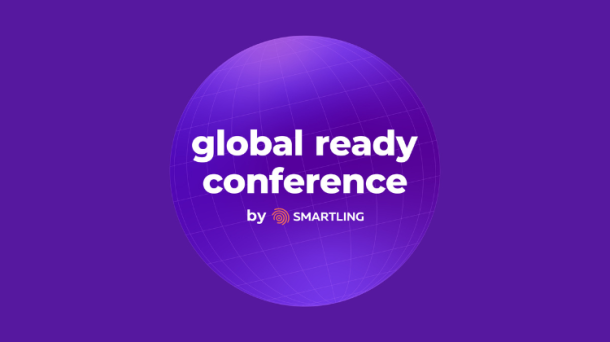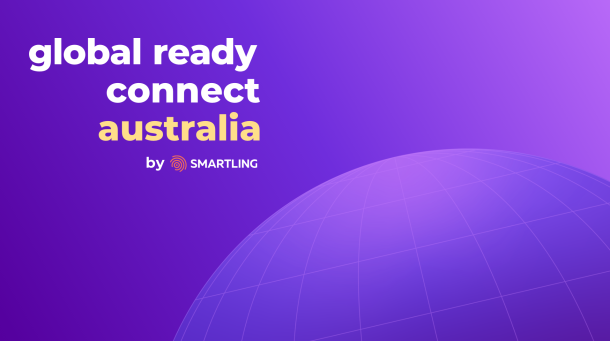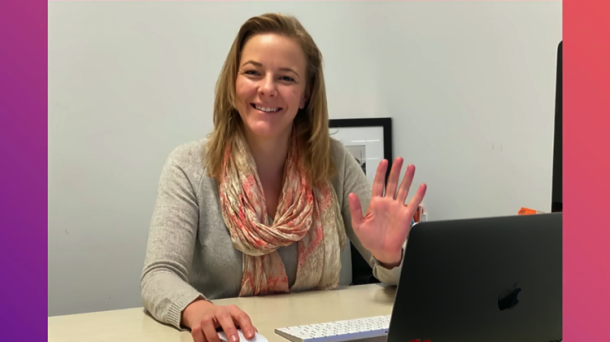Living and working in the age of artificial intelligence (AI) is equal parts exciting and uncertain. Given the rapid pace of development, many professionals in the localization industry are wondering:, “How will AI impact me and my career?” Some may even worry that AI will make their job obsolete.
In her keynote speech at Smartling’s 2024 Global Ready Conference, award-winning author and former tech executive Minette Norman shared insights about embracing change and taking ownership of our careers in this uncertain time. She discussed how we can all build resilience, increase joy, and thrive as we ride the wave of technology’s latest advancements.
Our Jobs Are Evolving. That Can Be Uncomfortable.
Each new technological advance naturally brings with it a little bit of discomfort and unease about what’s ahead. The introduction of translation memory and workflow automation tools, for example, likely inspired worries about their impact on translation professionals’ jobs when they came about years ago — just as machine translation and AI technologies do today.
But while worries about how AI will change things are understandable, Minette Norman offered assurances that “human beings are not going away.” As with each new technological advance, our jobs are evolving, albeit at an accelerated pace.
That means we have a choice to make: “We can either dig into what’s comfortable, or we can learn and evolve, which will be uncomfortable.” She urged us to choose the latter path — to get curious, become beginners again, learn new skills, and make lots of mistakes in the process.
The Key to Thriving: Tapping Into Our Humanity
Fortunately, even as we embrace how the latest technologies will transform our work, we will need human beings more than ever. Our workplaces will need our humanity more than ever. And that, right there, is the key to future-proofing our careers. Tapping into our humanity will allow us to continue to innovate, evolve, and, ultimately, thrive.
What does that mean for those in leadership roles?
People in the workplace need leaders who care about their well-being and their growth. In addition, Norman stressed the importance of fostering inclusive workplace cultures where all are welcome. She then went on to describe a few ways we can do that, both as leaders and as individuals.
1. Listen with curiosity.
Too often, we get distracted when we’re supposed to be listening. Thoughts of how we plan to respond may flood our minds, especially if we disagree with the person speaking or see things differently.
But the ability to listen well can be a superpower. It can make the other person feel understood and important, even if you don’t see eye to eye or naturally connect with them.
Listening well requires you to keep an open mind, to listen with curiosity, and to ask follow-up questions to ensure that you heard the speaker correctly. The goal should be to understand, not to respond.
2. Manage your reaction.
As you cultivate the ability to listen, you will find that people are more willing to share their ideas — even those they think you may disagree with — and to challenge your ideas. In those situations, it’s normal and human to get defensive.
But you can choose how you respond.
Look internally to recognize when you’re getting defensive. And pause. Take a breath or take a sip of water from your water bottle. Then you can come back and say, “I want to understand what you just said. Can you tell me more?” or “Can you give me a moment. I need to reflect on what you just said.” That will help to diffuse any tension and continue the dialogue.
3. Practice empathy.
When we work with others, tensions can creep in. Different personalities, communication styles, cultures, and more can cause clashes and misunderstandings. Especially in these situations, we all must practice cognitive empathy — that is, to imagine what someone else is feeling or experiencing. That will help humanize those we work with and allow us to work through our differences more easily.
Norman suggested using the words, “Just like me….” She said she tries to remind herself that “just like me, this person cares about being successful at work. And just like me, this person cares about their professional reputation. And just like me, this person has friends and family they love.” And so on.
She also stressed that, in her experience, those we don’t get along with or see eye to eye with are the best people to help us deepen our empathy.
4. Create a psychologically safe environment.
Norman defined psychological safety as “the belief that in a group setting, it is safe to disagree with someone else in a respectful way, it is safe to ask a question, it is safe to make a mistake because you know you will not be embarrassed for doing so, you will not be excluded, and you will not have any negative ramifications for asking that question or proposing an idea.”
To foster psychological safety, she suggested that you ask, “What am I missing?” or, collectively, “What are we missing?” She also noted that some may not feel comfortable speaking out in a meeting or group setting, so it’s important to find other ways to source ideas from those people — perhaps using silent brainstorming exercises or a shared document where all can contribute.
In addition, Norman stressed the importance of talking openly about failure. Innovation cannot happen without failure. So she urged us to stop hiding our failures, and instead, share them, learn from them, and do better moving forward.
Finding Meaning and Purpose at Work
Finally, Norman shared her experiences and advice on how to find meaning and purpose at work. She explained the idea of “job crafting,” or redesigning a job in ways that foster engagement, job satisfaction, and resilience.
In other words, how you talk about and think about your job matters. You will have an easier time thriving at work when you view your job as aligned with your own values and goals.
“Job crafting” won’t merely help future-proof your individual career, either. The benefits will ripple out to the company as a whole. If your workforce feels their work is meaningful and that they are working with others to have a positive impact on society, that sentiment will drive company-wide innovation.
—
Want to learn more? Watch this year’s Global Ready Conference to gain more insights into how AI is transforming translation. All sessions are available on demand here.

.jpg)





